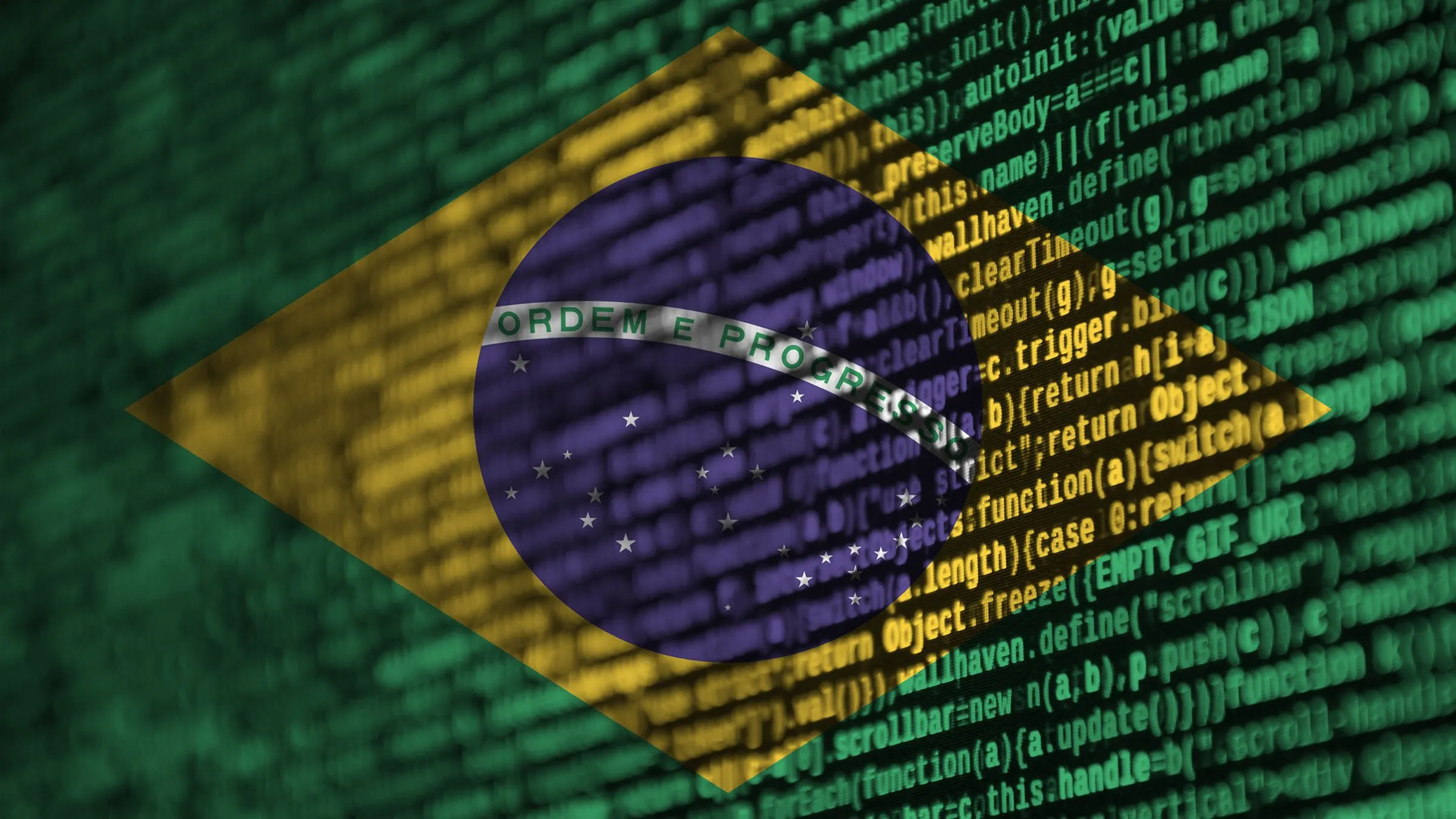DREX will be the official name of Brazil's new central bank digital currency (CBDC), also known as the digital real, according to a Monday announcement from the Central Bank of Brazil.
The name was revealed during a live broadcast on the Bank's YouTube channel hosted by Fábio Araújo, coordinator of the digital real, and Aristides Cavalcante, deputy head of the Central Bank's technology and information department.
“DREX combines several elements of innovation: the D for digital, R for real, E for electronic, and X for transaction, taking a step further in this family of Pix that we created and was a success,” Araújo said.
Pix is a Brazilian platform that offers instant, free electronic fund transfers using QR codes and easy-to-remember IDs like phone numbers and emails addresses instead of account numbers.
The Central Bank also released the new visual branding for DREX today.
“Alluding to a transaction, the two arrows that lean into the 'D' relate to the evolution of the real to the digital environment, reinforcing the attribute of agility, and the use of colors, in a transition from blue to light green, conveys the message of 'transaction completed,'” the entity explained.
The digital real project will rely on authorized entities to mint the CBDC, which will be recorded with a distributed ledger technology (similar to blockchain). From there, DREX will begin to support operations such as buying and selling public treasury bonds—transactions that will take place quickly on the surface and be supported by Web3 infrastructure for burning, creating, and registering tokens.
Citizens will thus be able to use the tokenized real, which will be a representation of the digital real, which will be handled only by authorized financial institutions.
The project coordinator explained that the DREX will have a practical impact on the lives of everyday Brazilians, especially in increasing the financial services that can be offered to the population.
“With the digital real, people can make a loan more easily or have more accessible investment options or easier insurance," Araújo explained. "That is, we want to bring these financial products into people's hands and increase banking in Brazil."
Practical applications of DREX
Portal do Bitcoin detailed three use cases that the Central Bank is testing in the digital real pilot, which will conclude next March.
The president of Caixa Econômica Federal (Brrazil’s largest public bank), Maria Rita Serrano, said that government benefits such as Bolsa Família could be paid in the future through digital real.
“It's conceivable to pay social and labor benefits with tokenized currency in the future,” said Serrano. According to her, the bank intends to leverage the digital real to advance financial digitalization and social inclusion.
“Caixa is in 99% of Brazilian municipalities and has 155 million customers. It's a great breeding ground to test solutions,” added the president.
Earlier this month, Senator Carlos Portinho (PL) said that the digital real could also open doors for municipalities and other state entities to maintain cryptocurrency wallets—something not currently provided for by law.
“The digital real will be a reality and will underpin the cryptocurrency market. It will allow municipalities, states, and public powers to have their digital wallets, which will gain scale and attract investors,” the senator said.
In the politician's view, blockchain technology itself will change transparency and oversight of public power.
“It will allow us to track the real destination of the money," he explained. "For example, if an amendment that we allocate for the construction of a hospital was effectively used for that or was lost within a health fund."
Brazil's Central Bank could freeze accounts and change balances
In early July, the Central Bank published the digital real pilot project on its GitHub profile. This allowed the public to audit of the system code, and developers discovered the existence of a series of problematic functions within the smart contract.
According tot he code, one of the capabilities that the Central Bank has is the ability to freeze users' accounts, decrease target balances, confiscate, and mint new units of the digital currency.
“According to Brazilian legislation, the judiciary, in the proper conduct of judicial proceedings, has the prerogative to freeze or seize amounts held in the SFN (National Financial System)," the Bank told Portal do Bitcoin after being questioned about the entity's capabilities. "These functionalities, therefore, currently exist in the SFN and must be reproduced on the digital real platform to ensure its compatibility with current legislation."
Editor's note: This article was translated from Portuguese with permission from Portal do Bitcoin.

